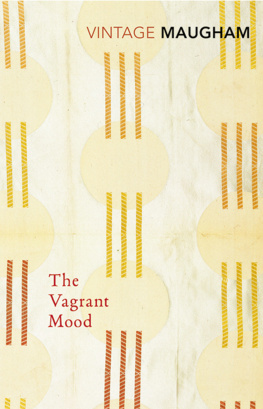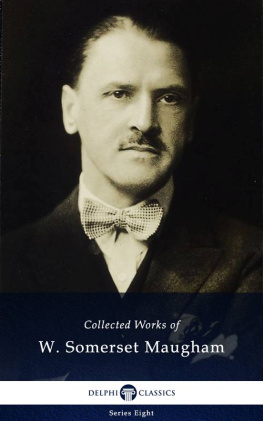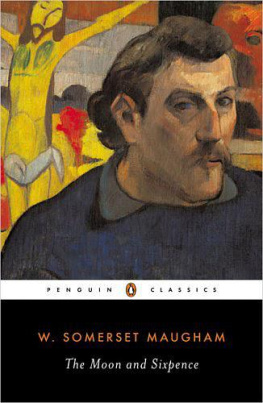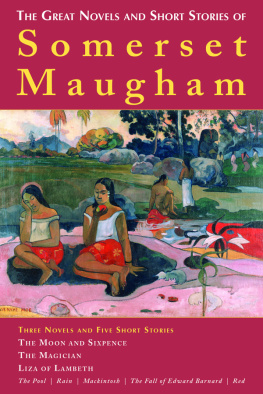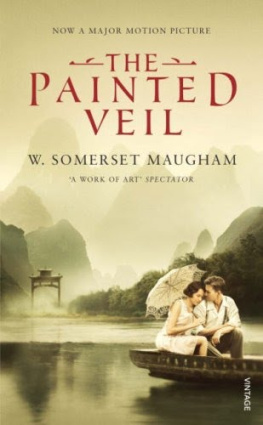Selina Hastings - The Secret Lives of Somerset Maugham
Here you can read online Selina Hastings - The Secret Lives of Somerset Maugham full text of the book (entire story) in english for free. Download pdf and epub, get meaning, cover and reviews about this ebook. year: 2009, publisher: John Murray, genre: Non-fiction. Description of the work, (preface) as well as reviews are available. Best literature library LitArk.com created for fans of good reading and offers a wide selection of genres:
Romance novel
Science fiction
Adventure
Detective
Science
History
Home and family
Prose
Art
Politics
Computer
Non-fiction
Religion
Business
Children
Humor
Choose a favorite category and find really read worthwhile books. Enjoy immersion in the world of imagination, feel the emotions of the characters or learn something new for yourself, make an fascinating discovery.

- Book:The Secret Lives of Somerset Maugham
- Author:
- Publisher:John Murray
- Genre:
- Year:2009
- Rating:3 / 5
- Favourites:Add to favourites
- Your mark:
- 60
- 1
- 2
- 3
- 4
- 5
The Secret Lives of Somerset Maugham: summary, description and annotation
We offer to read an annotation, description, summary or preface (depends on what the author of the book "The Secret Lives of Somerset Maugham" wrote himself). If you haven't found the necessary information about the book — write in the comments, we will try to find it.
The Secret Lives of Somerset Maugham — read online for free the complete book (whole text) full work
Below is the text of the book, divided by pages. System saving the place of the last page read, allows you to conveniently read the book "The Secret Lives of Somerset Maugham" online for free, without having to search again every time where you left off. Put a bookmark, and you can go to the page where you finished reading at any time.
Font size:
Interval:
Bookmark:
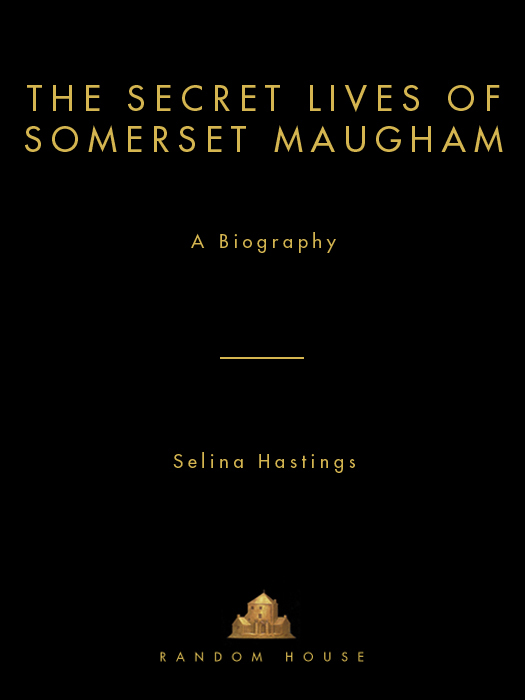
ALSO BY
SELINA HASTINGS
Nancy Mitford: A Biography
Evelyn Waugh: A Biography
Rosamond Lehmann
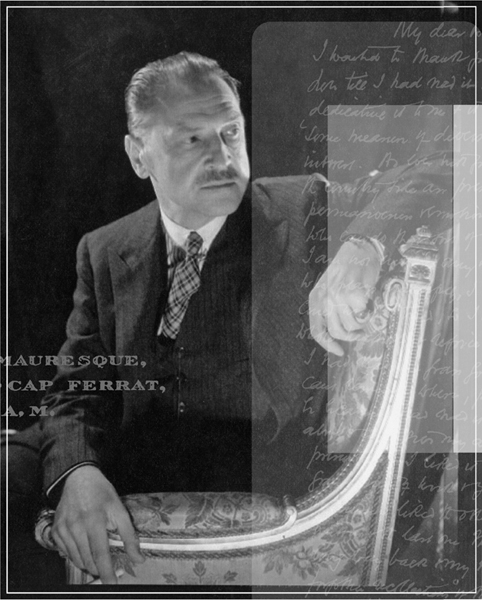
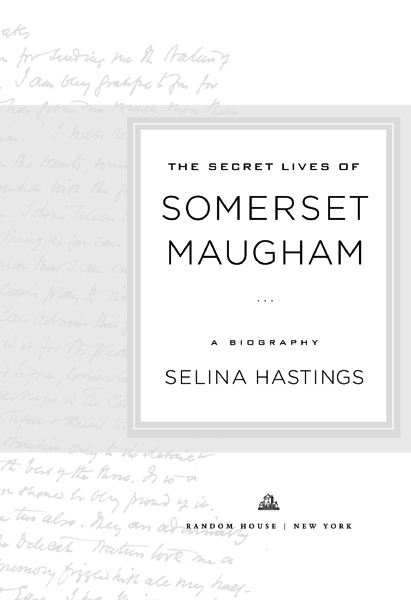
TO NEIL AND REIDEN JENMAN
WITH GRATITUDE AND AFFECTION
CHAPTER 1
CHAPTER 2
CHAPTER 3
CHAPTER 4
CHAPTER 5
CHAPTER 6
CHAPTER 7
CHAPTER 8
CHAPTER 9
CHAPTER 10
CHAPTER 11
CHAPTER 12
CHAPTER 13
CHAPTER 14
CHAPTER 15
CHAPTER 16
A BLACKSTABLE BOYHOOD
F OR MUCH OF HIS LONG LIFEHE LIVED TO BE OVER NINETY Somerset Maugham (18741965) was the most famous writer in the world. He was known everywhere for his superb short stories and for his novels, the immensely acclaimed, Of Human Bondage, becoming one of the most widely read works of fiction of the twentieth century. His books were translated into almost every known tongue, filmed, dramatized, and sold in their millions, bringing him celebrity and enormous wealth. Wherever he went he was pursued by journalists, eager for information: this extraordinary man seemed to know everyone, from Henry James to Winston Churchill, from Dorothy Parker to D. H. Lawrence. His magnificent villa in the south of France, much photographed and written about, was a byword for luxury and elegance. On the Riviera, as in London and New York, Maugham, always elegantly dressed, looked every inch the conventional English gentleman. And yet conventional he was not. In Maughams outwardly respectable life there was a great deal he was determined to keep hidden, and in old age, when he was besieged by would-be biographers, he did his utmost to make sure his privacy would remain intact. Evening after evening at the Villa Mauresque, Maugham, assisted by his secretary, went systematically through his papers, throwing every last scrap of personal correspondence onto the fire. He also wrote to his friends asking them to destroy any letters of his in their possession; and he issued strict instructions to his literary executors that no biography should be authorized, no access to his papers be allowed, and all requests for information be firmly refused.
And what were these areas of experience that it was so important to keep concealed? Mainly they were to do with his homosexuality, for Maugham lived in an era when in Britain homosexual practice was against the law. He was twenty-one at the time of the trial of Oscar Wilde in 1895, an event that traumatized a generation of men who were not by nature inclined toward marriage. And although Maugham himself did marry, and indeed fathered a child, his relations with his wife, Syrie, were wretchedly unhappy, even though he never allowed her for long to keep him apart from the great love of his life, a dissolute charmer named Gerald Haxton. Now, nearly half a century after Maughams death, the details of his long affair with Gerald and the harrowing story of his life with Syrie have come to light. The executors of the Maugham estate in London, the Royal Literary Fund, recently rescinded the clause in his will forbidding access to his correspondence; and a transcript has been uncovered of a long and detailed recording made by his daughter, Liza, of the inside story of her fathers private and domestic life. The material has turned out to be richly revealing: Liza, speaking to a close friend, was extremely frank; and ironically, Maughams request that his letters should be destroyed ensured not only that they were kept but that most were sold for very large sums to American universities.
The story that unfolds is that of a man who after a harrowing and unhappy childhood learned early to live undercover; appropriately, in both world wars he worked for British intelligence, sometimes at considerable risk to his personal safety. He was further distanced by developing at an early age a stammer that made him agonizingly self-conscious; it inhibited him, and as an adult he formed the habit of having by his side an interpreter, a sociable, outgoing type, usually also his lover, who would make the initial contact and enable Maugham himself to keep more or less in the background. And yet for all his elaborate defenses Maugham remained intensely vulnerable; he was a passionate, difficult man, capable of cruelty as well as of great kindness and charm, but despite all his worldly success he never found what he wanted. His miserable marriage wrecked years of his existence, and the great love of his life remained unrequited.
Many of his readers associate Somerset Maugham with the British Empire and the Far East, with Maugham himself a symbol of the quintessential English gentleman, the pukka sahib, descended from generations of old established county family. Yet in fact Maughams parents were recent arrivals among the professional middle classes, and they had lived not in England but in France: it was on French soil that Maughams life both began and ended. Maughams father, Robert Ormond Maugham (18231884), was a solicitor, the third generation to practice law in a family who were descended from farmers and small tradesmen in Westmoreland. It was Robert Maughams grandfather who had first come to London, where he had risen no higher than a lawyers clerk, although his son had gone on to achieve distinction not only in his legal practice but as one of the founders of the Law Society. Robert himself had done so well in the family business that in the 1840s he had moved to Paris to open a branch there, his partner, William Dixon, remaining behind to run the London office. The premises of Maugham et Dixon, juriconsultes anglais, were immediately opposite the British embassy, and here Maugham et Dixon prospered, especially after the firms semiofficial appointment as legal adviser to the embassy itself.
By his mid-thirties Robert Maugham was making a good living, doing well from the boom years of Louis Napoleon and the Second Empire, when in Paris everyone seemed to be making moneyEnrichissez-vous! was the cry. The population of the capital was enormously expanding, and so was the English community upon which much of the business of Maugham et Dixon naturally depended. Eventually Robert Maugham felt sufficiently well off to take a wife, and on the first of October 1863, at the age of thirty-nine, he married Edith Mary Snell, a ravishing young woman sixteen years his junior. Young Mrs. Maugham, daughter of an Indian army captain who had died when she was a baby, had lived in France most of her life. Her widowed mother had been socially superior to her husband, and it was one of her uncles who had been christened Somerset in honor of a distinguished godfather, the name to be passed on to his famous great-nephew, who never cared for it.
After the wedding the Maughams settled into an apartment at 25 Avenue dAntin (now Avenue Franklin D. Roosevelt), a broad street lined with chestnut trees just below the rond-point of the Champs-lyses. Here for nearly seven years the couple enjoyed an agreeable existence, with Robert, lively and gregarious, working hard at his business while Edith ran the household and supervised the upbringing of the three boys who arrived in quick succession. Both Maughams were small in stature, but while Roberts appearance verged on the brutishhe was plump, with a large sallow face, yellow whites to his eyes, and a bulbous chin framed by a mustache and bushy side whiskersEdith was doll-like and beautiful. Her hair was a rich auburn, her pale complexion flawless, her dark brown eyes large and set wide apart. When Robert and Edith were seen together, the contrast was almost risible, and they became affectionately known as Beauty and the Beast. The Maughams enjoyed a lavish style of living, keeping a carriage, frequently attending the theater and opera, and entertaining generously. Edith dressed with style, the apartment was always filled with flowers, and the finest hothouse fruit, grapes and peaches out of season, appeared on the table. Much of the Maughams social life inevitably revolved around the embassy, but Edith also numbered among her friends writers and painters, among them Prosper Mrime and Gustave Dor. Regarded as the reigning beauty of the English community, Mme Maugham was one of the few foreigners whose name was listed in the annual directory
Font size:
Interval:
Bookmark:
Similar books «The Secret Lives of Somerset Maugham»
Look at similar books to The Secret Lives of Somerset Maugham. We have selected literature similar in name and meaning in the hope of providing readers with more options to find new, interesting, not yet read works.
Discussion, reviews of the book The Secret Lives of Somerset Maugham and just readers' own opinions. Leave your comments, write what you think about the work, its meaning or the main characters. Specify what exactly you liked and what you didn't like, and why you think so.



